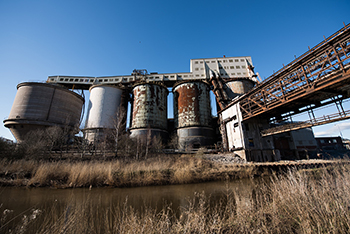
A new book from Prof Abdon Atangana from
the UFS Institute for Groundwater Studies
proposes new techniques for groundwater
remediation, including guidelines on how chemical
companies can be positioned in any city to avoid
groundwater pollution.
Photo: Pixabay
A new publication, Fractional Operators with Constant and Variable Order with Application to Geo-Hydrology, will be published later this year, on 1 November 2017. The author, Prof Abdon Atangana, from the Institute of Groundwater Studies at the University of the Free State, said the book proposes new techniques for groundwater remediation, including guidelines on how chemical companies can be positioned in any city to avoid groundwater pollution.
Focus of the book
Prof Atangana said researchers and practitioners interested in groundwater modelling and remediation from applied mathematical and geo-hydrology backgrounds, will benefit from reading this book.
According to Elsevier, the book provides a physical review of fractional operators, fractional variable order operators, and uncertain derivatives to groundwater flow and environmental remediation. It presents a formal set of mathematical equations for the description of groundwater flow and pollution problems using the concept of non-integer order derivative. Both advantages and disadvantages of models with fractional operators are discussed.
“Researchers and practitioners
interested in groundwater modelling
and remediation from applied
mathematician and geo-hydrology
backgrounds, will benefit from
reading this book.”
About the author
Prof Atangana specialises in applied mathematics, groundwater modelling, fractional calculus and their applications, methods for partial differential equations, methods for ordinary differential equations, iterations methods, asymptotic methods, perturbations methods, and numerical method for fractional differential equations, uncertainties analysis. He has participated in 18 international conferences, organised six special sections and symposiums in international conference in Europe, Africa, Asia and USA, and has been invited as plenary speaker in eight international conferences. He also serves as editor on 20 international journal of mathematics and applied mathematics and editor-in-chief of two international journals of applied mathematics.